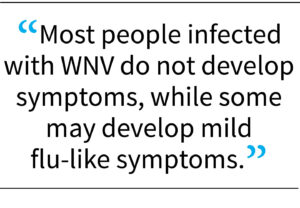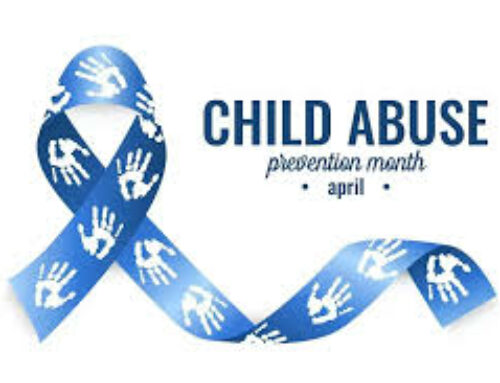Mosquitoes flourish in drought conditions
![]()

By Staff Reports
The County of Santa Clara Vector Control District is seeing an increase in West Nile virus-infected mosquitoes and the district encourages residents to remove sources of standing water and report mosquito activity in their neighborhoods to protect themselves and their community.
 West Nile virus is a significant public health concern. The California Department of Public Health considers it the most common and serious vector-borne disease in the state, causing more than 7,000 human infections and nearly 400 deaths since 2003, when it was first detected in California. There have been 18 human cases of West Nile virus in the state this year and, so far, none in Santa Clara County.
West Nile virus is a significant public health concern. The California Department of Public Health considers it the most common and serious vector-borne disease in the state, causing more than 7,000 human infections and nearly 400 deaths since 2003, when it was first detected in California. There have been 18 human cases of West Nile virus in the state this year and, so far, none in Santa Clara County.
Most people infected do not develop symptoms, while some may develop mild flu-like symptoms. Those with compromised immune systems and the elderly are at higher risk of severe symptoms and even death.
The Vector Control District has a robust mosquito control program to fight West Nile virus, which largely focuses on eliminating immature breeding mosquitoes in standing water to prevent them from becoming adults, when they can bite and potentially infect humans.
When the district detects adult mosquitoes that carry WNV, it takes the additional step of conducting adult mosquito control treatments to reduce mosquito populations in the immediate area and reduce the risk of human infection.
 The district has conducted six adult mosquito control treatments so far this year, up from three in 2021. The treatments are administered using truck-mounted machines that emit an ultra-low volume (ULV) mist containing small amounts of U.S. Environmental Protection Agency-approved insecticides. The treatments are safe for people, pets and animals.
The district has conducted six adult mosquito control treatments so far this year, up from three in 2021. The treatments are administered using truck-mounted machines that emit an ultra-low volume (ULV) mist containing small amounts of U.S. Environmental Protection Agency-approved insecticides. The treatments are safe for people, pets and animals.
Mosquitoes are typically most active in the summer and fall, as warm weather speeds up their life cycle. Although mosquitoes need water at each stage of life, they still thrive during drought conditions, such as the severe drought Santa Clara County is experiencing now. Drought years tend to lead to higher WNV activity as creeks dry up and rushing water is replaced by stagnant pools, creating more favorable breeding habitat for mosquitoes, which need just a quarter inch of water to reproduce.
The district inspects marshes, catch basins, street curbs, creeks and other stagnant water sources to find breeding mosquitoes and eliminate them. The district focuses on eliminating immature mosquitoes using methods that minimize the need for pesticides.
However, mosquito control is a community effort, and residents can help reduce mosquito breeding by removing sources of standing water. Here are some things you can do to protect yourself and your community.
On your property:
- Inspect for standing water on a weekly basis.
- Drain or turn over anything that can hold water, such as flowerpots, planter bases, pet dishes, buckets and old tires.
- Clean items like bird baths and pet bowls once a week.
- Clear debris from rain gutters on a regular basis to allow water to flow.
- Properly screen rain barrels, cisterns and irrigation drains to prevent mosquito access.
- Fix leaky water faucets and broken sprinkler heads and avoid overwatering lawns and plants.
- Ensure window and door screens are in good condition with no holes or tears and are tight-fitting.
- Ensure swimming pool water level is adequate for proper circulation and filtration.
- Free mosquitofish can be requested at www.sccvector.org for placement in neglected pools/spas, ornamental ponds, water troughs and other artificial bodies of water.
Outdoor activities:
- Limit outdoor activities during dusk and dawn — these are the times when the mosquitoes that transmit WNV are most active.
- If spending time outdoors, dress in long-sleeve shirts and long pants, preferably in light colors – mosquitoes are mostly attracted to dark colors.
- Apply insect repellent that contains DEET, IR3535, or Oil of Lemon Eucalyptus, always following label instructions.
Contact the Vector Control District if you are being bothered by mosquitoes or know of a potential mosquito-breeding source. For assistance, contact the district at (408) 918-4770, email [email protected], or submit an online service request.







